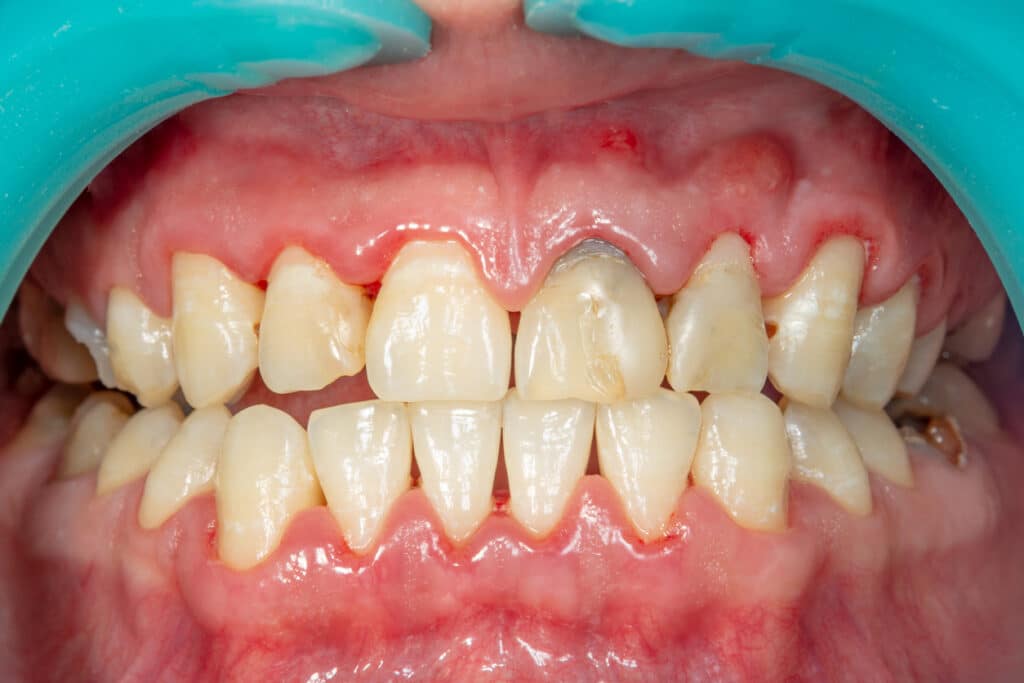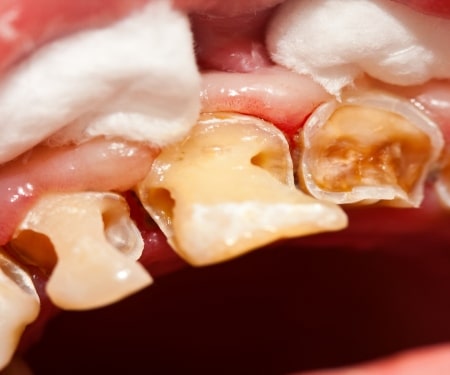A dry mouth or Xerostomia occurs when there is a decrease in saliva in the mouth. This can happen for several reasons, and sometimes you may not even notice.
There is a range of dry mouth from slight to severe. Your dentist or hygienist might notice your dry mouth before you even notice it is a problem. Some causes of dry mouth are:
- A side effect of medications
- Head & neck radiation
- Result of disease ( i.e., Sjogren’s Syndrome, Hypertension, Diabetes, HIV/AIDS,
- Hepatitis C and/or Lymphoma)
- Mouth breathing
- Smoking
- Dehydration
7 Common Causes of Xerostomia
Saliva plays an important role in your dental health… Keeping tissues moist and lubricated helps prevent disease. Saliva acts as a buffer to acids in the mouth to prevent decay. It also helps us chew, talk and swallow. When your mouth is dry you are at a higher risk for cavities.

6 Ways to Treat Dry Mouth
Treatment for xerostomia requires identifying the cause. If it’s due to a medication side effect, your dentist and/or hygienist can work with your physician to find a good alternative. Xerostomia as a result of smoking would be helped by smoking cessation.
If you’re a mouth breather, a possible referral to an ENT may be helpful. If there isn’t a clear cause to “cure” the dry mouth, there are things that need to be done to decrease the occurrence of decay at a high rate. These include but are not limited to:
- Increasing fluoride via toothpaste, rinse, and/or take-home trays.
- Maintaining periodic hygiene visits
- Managing diet to decrease sugar intake.
- Using a source of xylitol
- Increasing water consumption
- Practicing good oral hygiene
Ignoring a dry mouth can cause an individual to go from no cavities to many cavities in a matter of months, and from there, the decay is much harder to control.
If you suspect you have this condition, whether or not you know the cause, bring it up at your next dental visit. The sooner this condition is addressed the better we can preserve your teeth!
References
ADA: https://www.ada.org/en/member-center/oral-health-topics/xerostomia
American Academy of Oral Medicine:
https://www.aaom.com/index.php%3Foption=com_content&view=article&id=107:xerostomia&catid=22:patient-condition-information&Itemid=120

